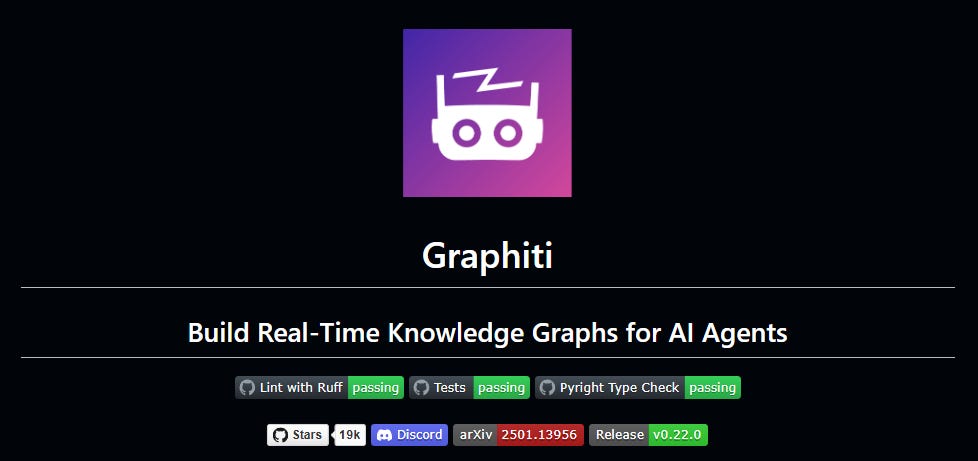[Dev Catch Up # 84] - Claude Haiku 4.5, ChatGPT Auto Memory Management, 15 Golang features, Karpathy's NanoChat, Most used Dev Tools 2025, Graphiti, Help-me-schedule feature in Gmail, pysnc and more!
Bringing devs up to speed on the latest dev news from the trends including, a bunch of exciting developments and articles
Welcome to the 84th edition of DevShorts, Dev Catch Up!
For those who joined recently or are reading Dev Catch Up for the first time, I write about developer stories and open source, partly based on my work and experience interacting with people all over the globe.
Thanks for reading Dev Shorts! Subscribe for free to receive new posts and support my work.
Some recent issues from Dev Catch up:
Join 8400+ developers to hear stories from Open source and technology.
Must Read
Anthropic has released Claude Haiku 4.5. It is their latest and smallest model. Despite its size, it delivers coding performance close to Sonnet. It performs faster and runs at one-third of its cost. Check Anthropic’s post on Claude Haiku 4.5 for full details.
OpenAI has released memory management features for ChatGPT. The app now manages your saved memories automatically. So, you don’t have to worry about the “memory full” issue. You can also search and re-prioritize memories. Read OpenAI’s post on ChatGPT memory settings for full details.
Andrej Karpathy has released NanoChat. It’s an open-source mini ChatGPT built with simple, minimal clean code. The project runs a full LLM pipeline from pre-training to chat UI on a single machine. Check the NanoChat GitHub repo to explore more.
A Substack post explores the most used developer tools. Parts 1 and 2 covered AI tools, IDEs, and backend stacks. Part 3 focuses on frontend, API, and monitoring tools. React and Next.js lead in frontend, while Postman, Sonar, and Grafana stand out in their categories. Check this post to see the top developer tools of 2025.
OSS Highlight of the Week
This week we’re featuring Graphiti. It is an open-source framework for building and querying knowledge graphs. It keeps updating the graph by adding user interactions, business data, and external information in real time. It’s ideal for building interactive, context-aware AI applications. Check the Graphiti GitHub Repo for more details.
Good to know
I found this simple guide on how to read and write files in Node.js. It explains different ways to handle files safely, even large ones, without using too much memory. Check this post to learn the right way to work with files in Node.js.
If you’re working in Go, check this post that shares 15 Golang features many developers don’t know. It covers neat tricks like ranging over integers, indexed string interpolation, and more. Check the post to explore some clever Go insights.
I came across pyscn, a new Python code quality analyzer. It checks your code for complexity, dead code, and duplication. It also works with AI coding tools like Claude, Cursor, and ChatGPT through MCP. Check the Pyscn GitHub repo to see how it helps you write cleaner, more maintainable Python code.
Encord has built the world’s largest multimodal dataset. It includes text, images, audio, video, and 3D point clouds, and it’s fully open source. Check Encord’s blog to learn more about this massive multimodal dataset.
If you’re working on web scraping, check out the Crawlee-Python library. It’s an open-source tool for web scraping and browser automation. It helps you build reliable scrapers quickly. Check the Crawlee-Python GitHub repo to learn more.
Claude now supports modular Agent Skills. They are folders that include instructions, scripts, and resources that turn general-purpose agents into specialists. Skills load only when needed. Check Anthropic’s docs to learn how Agent Skills can extend Claude’s functionalities.
Notable FYIs
Google has released an interesting new feature in Gmail called “Help me schedule.” It suggests time slots based on your calendar and email context. Once someone picks a slot, it auto-creates the calendar invite. Check this post to know more about this “Help Me Schedule” feature in Gmail.
OpenAI has released a set of ready-to-use prompts for common tasks. They cover things like writing emails and summarizing long threads. Check the OpenAI Academy resource to learn how to use ChatGPT effectively for your role.
Last week we covered AgentKit, the agent builder announced at OpenAI’s Dev Day. This week, I came across an open-source alternative to AgentKit called Shannon. It helps you run and manage AI agents with better control and easy setup. Check the Shannon GitHub repo to learn more.
Microsoft has released Amplifier, a framework to boost AI-assisted development. It helps you build coding agents, manage workflows, and keep context across sessions. Check the Amplifier GitHub repo to see how it improves AI-powered coding.
Google has launched Veo 3.1 through the Gemini API. The model can now create videos with richer audio and better detail. A new Scene Extension feature lets you make longer videos, over a minute in length. Check Google’s blog to see how Veo 3.1 enhances video creation.
That’s it from us with this edition. We hope you are going away with a ton of new information. Lastly, share this newsletter with your colleagues and pals if you find it valuable. A subscription to the newsletter will be awesome if you are reading it for the first time.



This article comes at a perfect time. Claude Haiku's speed and cost efficiency are real game-changers. What if this makes advanced coding assistants widely accessible even for smaller, resource-constrained projects? Always insightful to catch up. Graet work!